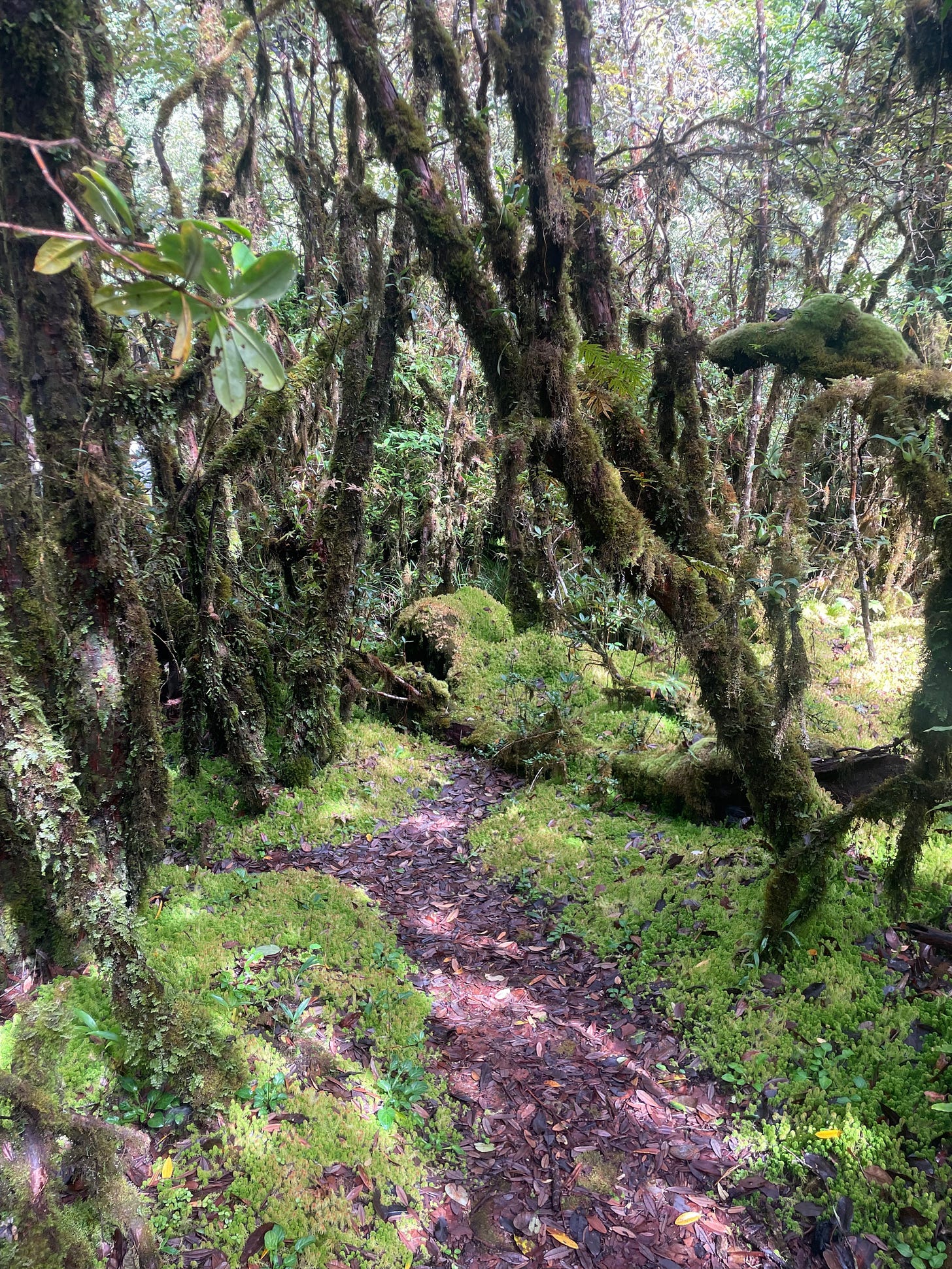Routines
I was walking back to my hotel in Chiang Mai, passing by vendors hawking their wares, such as massages and Thai food, when I noticed a South Asian man of about 50 crowing "Pad Thai, Pad see ew" into the evening air. As I approached his store, he clocked me, immediately lowered his voice, and said, "Butter chicken..." in a tone that I had become familiar with on walks past certain seedy massage establishments after 9 p.m.
In these after hours, you catch men, mostly older, stumbling from block to block while being enticed, sometimes coaxed into alleged pleasure palaces. Before seeing this, I had assumed a power balance that swayed to the side of the man and his dollars (or euros). But once you witness the dance and song on a typical rainy Chiang Mai evening, you start seeing the men as fish in the lake that are kept well-fed. They are plucked from the lake every night and then released back a few hours later. The patrons, typically middle-aged and white, are not that different from the 20-pound marlins that their age groups love to pose for pictures with.
Some of them don't even make it back. The day after I felt violated by the Butter Chicken call, I was about to take a sip of Khao Soi when I noticed an ambulance pull up to the building opposite where I sat. The doors opened to reveal two legs draped in a white cloth. I feared the worst. My lunch was about to be ruined by the sight of a dead man. Thankfully, the stretcher wheeled out and revealed a middle-aged white man. Alive. They seemed to be taking the stretcher into one of those seedy establishments. One last rendezvous, perhaps.
It could also be that he lived there in the middle of all that. Things seem to leak into each other here. The coffee shop bleeds into a dessert shop that bleeds into a warehouse. The history of the building is often exposed. Tourists enjoy this but that does not seem to be the point. There is simply no attempt to conceal the history of the lived environment in Chiang Mai. The aforementioned coffee shop is not a space, although an American should be forgiven for thinking so. Also, there are no designated Third Places here. If there are (more than) enough people and density, anywhere can be a third space.
Patterns
Patterns repeat here. Both in nature and the lived environment. The moss at the top of Doi Inthanon has more moss growing on it. The spirals of the temples have more little spirals on top of them - as if the architect is apologizing for not being able to build the spirals up to the heavens, so this little placeholder spiral will have to do for now. My eyes glaze over the intricate artwork on the walls of the temples, but the same motifs repeat over and over again, searing into my brain like symbol magic. There are paddy fields bordered by flowers, which are bordered by banana trees, and the combination of the three repeats as if you copy-pasted them in a simulation game. Thailand has had fourteen military coups in the last 75 years, so that repeats too.
In his essay What is Pattern, art critic Yanagi Soetsu talks about what makes patterns distinct from the objects they represent:
A pattern is thus not a depiction of an object as it exists in nature, not a realistic rendition. It is an image of the object as it appears to the intuition. To borrow one of William Blake's favourite words, it is a child of the 'imagination'. It is not a product of the rational mind and could therefore be called irrational. In a sense, a pattern is an exaggeration. It is not the real thing; it is not a scientific illustration. A bamboo pattern is different from the thing itself, as everyone knows. A bamboo pattern is not the bamboo itself, but rather a symbol representing the bamboo.
What objects do the patterns in Chiang Mai represent? I could argue that it represents the Mandala system of governance, a political and religious philosophy that dominates southeast Asia that is based on shared circles of governance, influence, family, etc. I was going to do exactly this, but someone who lives in South East Asia told me, "The joke in South Eastern studies is - how long can you go without mentioning Mandalas?" This caused significant distress to my Thinkboi self. So, the patterns are impenetrable for me now.
The impenetrable shroud of repeating patterns conjures up the phrase organic machinery in my mind, and this phrase repeats wherever I go in Southeast Asia.



